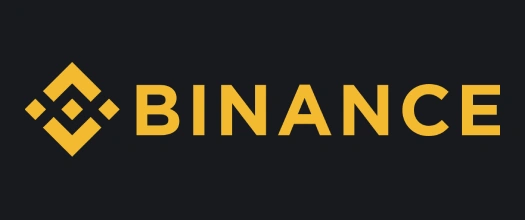Spot crypto trading involves buying and selling cryptocurrencies at their current market prices, with the goal of profiting from price movements. In contrast with derivatives such as CFDs or futures, spot trading grants direct ownership of digital assets, making it a popular choice for traders seeking transparency and control.
Although the Financial Conduct Authority (FCA) has banned the sale of crypto derivatives, such as CFDs, to retail traders in the UK, spot crypto trading remains accessible. Several UK-friendly platforms offer spot crypto trading services suitable for both beginners and experienced investors.
 Kraken
Kraken Uphold
Uphold Coinbase
Coinbase Binance
BinanceBelow you can find more information about the best platforms for spot crypto trading in the UK:
- At Kraken, trading cryptocurrencies on the spot incurs maker and taker fees of up to 0.25% and 0.40%, respectively, for regular customers with a monthly trading volume of up to $10,000. Spot traders can further reduce their costs by gradually increasing their monthly turnover. More than 350 coins are available for spot trading, with new users able to start by depositing between £1 and £150, depending on the payment method used. In the UK, Kraken is registered as a cryptoasset firm and authorised as an Electronic Money Institution and investment firm.
- Uphold enables spot trading with a transparent pricing structure where fees depend on the type of assets customers purchase. Apart from Bitcoin, Ethereum and various altcoins, registered members can trade fiat currencies and precious metals. UK customers can purchase crypto via credit/debit cards, Apple Pay, Google Pay and bank transfers. Uphold’s London-based entity has received FCA approval as a registered cryptoasset firm.
- Coinbase, an FCA-registered Virtual Asset Service Provider (VASP), delivers an intuitive spot trading experience, offering an extensive range of more than 240 popular and emerging coins. Maker fees at the exchange range from 0.00% to 0.40%, depending on the customer’s tier. Taker fees are also volume-specific, ranging from 0.05% to 0.60%. Trading stablecoins such as Wrapped Bitcoin (WBTC) incurs taker fees of 0.10% to 0.45%, with zero maker charges.
- Bitstamp provides deep liquidity for spot transactions, competitive maker/taker fees starting from 0.10%/0.10%, and the option to trade more than 350 listed coins. Traders can engage in peer-to-peer transactions or buy cryptocurrencies on the spot using their bank cards.
This publication covers:
- The basics of spot trading and how it differs from other forms of trading.
- Regulatory and tax considerations for UK traders.
- Steps to start trading and secure your assets.
- Pros, cons, and FAQs tailored to the UK market.
Understanding Spot Trading in Crypto
The primary objective of spot trading is to purchase digital currencies at their current market prices and sell them when the price increases, thereby realising a profit. This type of trading involves two main order types: market orders, which are executed immediately at the current market price, and limit orders, which are executed when the market price reaches a specified level.
- Market Orders: Executed immediately at the best available price.
- Limit Orders: Traders set a specific price for buying or selling.
For example, if Bitcoin (BTC) is trading at £80,000, a trader can place a limit order to buy at £79,500 or sell at £81,000. Spot trading is straightforward, which makes it ideal for crypto novices or those who prefer direct asset ownership.
Spot Trading vs. Other Forms of Trading
Spot trading differs from other forms of trading, such as CFDs, futures and options trading. CFD trading involves contracts for difference, which are agreements to exchange the difference in value of an asset between the time the contract is opened and closed. Futures trading entails trading contracts that obligate the buyer to purchase an asset at a specified price on a specific date. Options contracts give the buyer the right, but not the obligation, to purchase an asset at a specified price.
In contrast, spot trading involves the direct ownership of assets, which can be more appealing to traders who want to have control over their investments. Additionally, spot trading is generally less risky than margin trading, which entails borrowing funds to invest in assets.
| Strategy | Spot Trading | CFDs | Futures | Options |
| Ownership | Direct ownership of crypto | No ownership; speculative | No ownership; speculative | No ownership; speculative |
| Leverage | None | Limited leverage | Limited leverage | Limited leverage |
| Risk | Lower (risk is limited to the amount traders invest) | Higher (leverage amplifies risk) | Higher (leverage amplifies risk) | Higher (complex strategies) |
Cryptocurrency Wallets
While spot crypto trading allows traders to own digital assets, it also means that they are responsible for the security of these assets. Cryptocurrency wallets are software programmes that store, send and receive digital currencies. There are different types of wallets, including hot wallets, which are connected to the internet, and cold wallets, which are not.
Traders must ensure that their wallets are secure and protected from hacking and other forms of cyberattacks. It is also essential to choose a reputable and trustworthy wallet provider to minimise the risk of losing assets. Furthermore, traders should always store their wallet passwords and private keys safely to prevent unauthorised access to their assets.
- Hot Wallets: Connected to the internet (e.g., Binance, Coinbase). Convenient but vulnerable to hacking.
- Cold Wallets: Offline storage (e.g., Ledger, Trezor). Highly secure but less accessible.
The best practices regarding crypto wallets include the following:
- Use cold wallets for long-term storage.
- Enable two-factor authentication (2FA) on exchanges.
- Regularly update wallet software.
Is Crypto Regulated in the UK?
Cryptocurrency is regulated in the United Kingdom, though it is not considered legal tender but rather a form of personal property under proposed legislation. The Financial Conduct Authority (FCA) plays a crucial role in regulating crypto assets in the UK, focusing on anti-money laundering (AML) and know-your-customer (KYC) compliance.
In summary, key regulations on cryptocurrency in the UK include:
- Registration Requirements: Crypto service providers must register with the FCA under the Money Laundering Regulations (MLRs).
- AML and KYC Compliance: Businesses must implement effective AML and KYC policies to prevent illicit activities.
- Future Regulatory Framework: The UK government is developing a comprehensive regulatory regime for crypto assets, which will bring non-security token crypto assets under the Financial Services and Markets Act (FSMA) framework. This includes regulating activities such as issuance, exchange, investment and custody. Non-UK crypto firms servicing UK retail customers also need FCA authorisation and a UK presence.
- Travel Rule Implementation: The UK has implemented the ‘Travel Rule’, requiring crypto businesses to collect, verify and share information about crypto asset transfers.
- Financial Promotions Regulation: Qualifying crypto assets are now within the scope of the financial promotions regime, ensuring that promotions are fair, clear and not misleading.
The United Kingdom is undergoing significant regulatory developments for crypto trading in 2025. On 29 April 2025, HM Treasury published draft legislation aimed at bringing cryptoassets firmly within the scope of the Financial Services and Markets Act 2000. This new regime expands regulatory oversight to crypto exchanges, custodians, brokers, staking providers and stablecoin issuers, subjecting them to rules on capital, conduct, market abuse, disclosure, governance and senior management accountability.
The government has confirmed its commitment to making ‘the UK a global hub for digital asset technologies, aligned with the Plan for Change to drive growth, innovation and security’.
Taxation of Cryptocurrencies in the UK
The taxation of cryptocurrencies in the UK is governed by HM Revenue & Customs (HMRC) and involves both Capital Gains Tax (CGT) and Income Tax. The tax treatment depends on the nature of the transaction and the individual’s activities. CGT applies to profits made from selling, trading or disposing of cryptocurrencies. This includes exchanging one cryptocurrency for another, selling it for fiat currency, or using cryptocurrency to purchase goods and services.
There is a tax-free allowance for CGT, under which UK crypto spot traders are not required to pay taxes. For the 2024-2025 tax year, and continuing into the 2025-2026 tax year, the annual tax-free allowance for CGT is £3,000. Gains above this amount are taxable. The CGT rates are 18% for the basic rate band (up to £50,270) and 24% for the higher and additional rate bands (above £50,270).
Income Tax applies to income derived from cryptocurrency activities such as mining, staking, or receiving cryptocurrency as payment for services. Income from these activities is taxed according to the individual’s income tax band, ranging from 0% to 45%.
Starting in January 2026, HMRC will require crypto service providers to collect and report detailed user and transaction information to improve tax compliance, including full name, address, tax residence, National Insurance number and transaction details.
KYC Procedures and AML Regulations
Cryptocurrency exchanges operating in the UK must comply with know-your-customer (KYC) procedures and anti-money laundering (AML) regulations. These regulations require exchanges to verify the identities of their customers and to monitor transactions for suspicious activity. The purpose of these regulations is to prevent the use of cryptocurrencies for illicit activities, such as money laundering and terrorist financing. Exchanges must also implement measures to prevent fraud and protect their customers’ assets.
Additionally, exchanges must report suspicious transactions to the relevant authorities and comply with all applicable laws and regulations. By complying with KYC procedures and AML regulations, cryptocurrency exchanges in the UK can help to increase trust in the market and prevent fraudulent activities.
In summary, KYC procedures and AML regulations involve:
- KYC: Verify identity using government-issued IDs and proof of address.
- AML: Monitor transactions for suspicious activity and report to the FCA.
Steps to Start Spot Crypto Trading
To start spot crypto trading in the UK, traders must follow these steps:
- Choose a reputable and trustworthy cryptocurrency broker/exchange that is licensed or registered by the FCA. It is essential to research and compare different providers to find the one that best suits your needs.
- Create an account on the chosen platform and verify your identity through KYC procedures. This step is crucial to ensure compliance with AML regulations and to protect your assets.
- Deposit funds into your account using a payment method accepted by the platform. Make sure you understand the fees associated with depositing and withdrawing funds.
- Choose the cryptocurrencies you want to trade and understand the different order types, such as market and limit orders. It is essential to have a clear understanding of the trading process and the risks involved.
- Set up a secure wallet to store your cryptocurrencies. This can be a software wallet, a hardware wallet or a paper wallet, depending on your preferences and needs.
- Start trading by placing orders on the platform. Monitor your trades and adjust your strategy as needed to minimise losses and maximise gains.
- Continuously educate yourself on the cryptocurrency market and stay up-to-date with the latest news and trends. This will help you make informed investment decisions and navigate the market with confidence.
By following these steps, traders can start spot crypto trading in the UK and take advantage of the opportunities offered by the cryptocurrency market.
Pros and Cons of Spot Crypto Trading
Spot crypto trading comes with a distinct set of advantages and disadvantages. Here are some of the key pros and cons:
Pros
- Simplicity and real-time execution: Spot trading allows for quick and easy investments, with trades executed in real time.
- Less risky compared with margin trading: Spot trading does not involve borrowing funds, which reduces the risk of significant losses.
- Direct ownership of assets: Spot trading allows traders to own the underlying assets, giving them more control over their investments.
- Wide range of cryptocurrencies: Spot trading provides access to a broad range of cryptocurrencies, allowing traders to diversify their portfolios.
- Cryptoassets can be utilised for purchases and staking: Spot trading enables traders to use their cryptoassets for various purposes, such as making purchases or participating in staking programmes.
Cons
- Volatility: The value of cryptocurrencies can fluctuate rapidly, resulting in significant losses if not managed properly.
- Hacking and cyberattacks: Spot trading involves the risk of hacking and cyberattacks, which can result in the loss of assets.
- Cryptocurrency scams: The cryptocurrency market is prone to scams, which can lead to significant financial losses.
- Market manipulation: Spot trading is susceptible to market manipulation, which can affect the price of cryptocurrencies and result in losses for traders.
- No investor compensation: Crypto is high-risk and not covered by the Financial Services Compensation Scheme (FSCS), which is a key concern for UK users.
By understanding the pros and cons of spot crypto trading, you can make informed investment decisions and navigate the market with confidence.
FAQs
Are cryptocurrencies legal in the UK?
Yes, cryptocurrencies are legal in the UK, but they are not recognised as legal tender. Instead, they are considered property for legal purposes. Crypto exchanges and custodial wallet providers operating in the UK must be registered with the Financial Conduct Authority (FCA) under the Money Laundering Regulations. The FCA also bans the sale of crypto derivatives to retail investors.
Where can I trade crypto in the UK?
UK residents can trade crypto via centralised exchanges (CEXs) such as Kraken or Coinbase (both FCA-registered), decentralised exchanges (DEXs) (with caution, as they are not regulated), and peer-to-peer (P2P) or off-exchange platforms (some require enhanced due diligence). It is important to ensure the platform is FCA-registered or complies with UK AML rules.
What are popular cryptos for spot trading in the UK?
Some of the most commonly traded cryptocurrencies by UK investors include Bitcoin (BTC), Ethereum (ETH), Tether (USDT), Solana (SOL), Ripple (XRP), Cardano (ADA) and USD Coin (USDC). Stablecoins and layer-1 tokens are especially popular for both speculation and portfolio diversification.
How are crypto profits taxed in the UK?
Crypto profits are subject to Capital Gains Tax (CGT). You get a £3,000 CGT allowance (2024/25 tax year). Profits above the allowance are taxed at 18% or 24%, depending on your income level. If you are frequently trading or doing so as a business, Income Tax may apply instead. You must report gains and losses via your Self Assessment tax return. Losses can be carried forward to offset future gains.
Can I stake crypto in the UK?
Yes, staking is allowed in the UK. However, rewards from staking are considered income and are taxed under Income Tax rules, not capital gains. If you earn over your Personal Allowance (£12,570) or the Trading Allowance (£1,000 per year), you may owe tax on staking rewards.
Conclusion
The crypto spot market offers UK traders a straightforward way to invest in digital assets while maintaining direct ownership. By choosing regulated platforms, understanding tax implications and securing assets in private wallets, traders can navigate the crypto market confidently. Despite risks such as volatility and scams, the potential for long-term growth makes spot crypto trading an attractive option for diversifying portfolios in the UK’s evolving financial landscape.